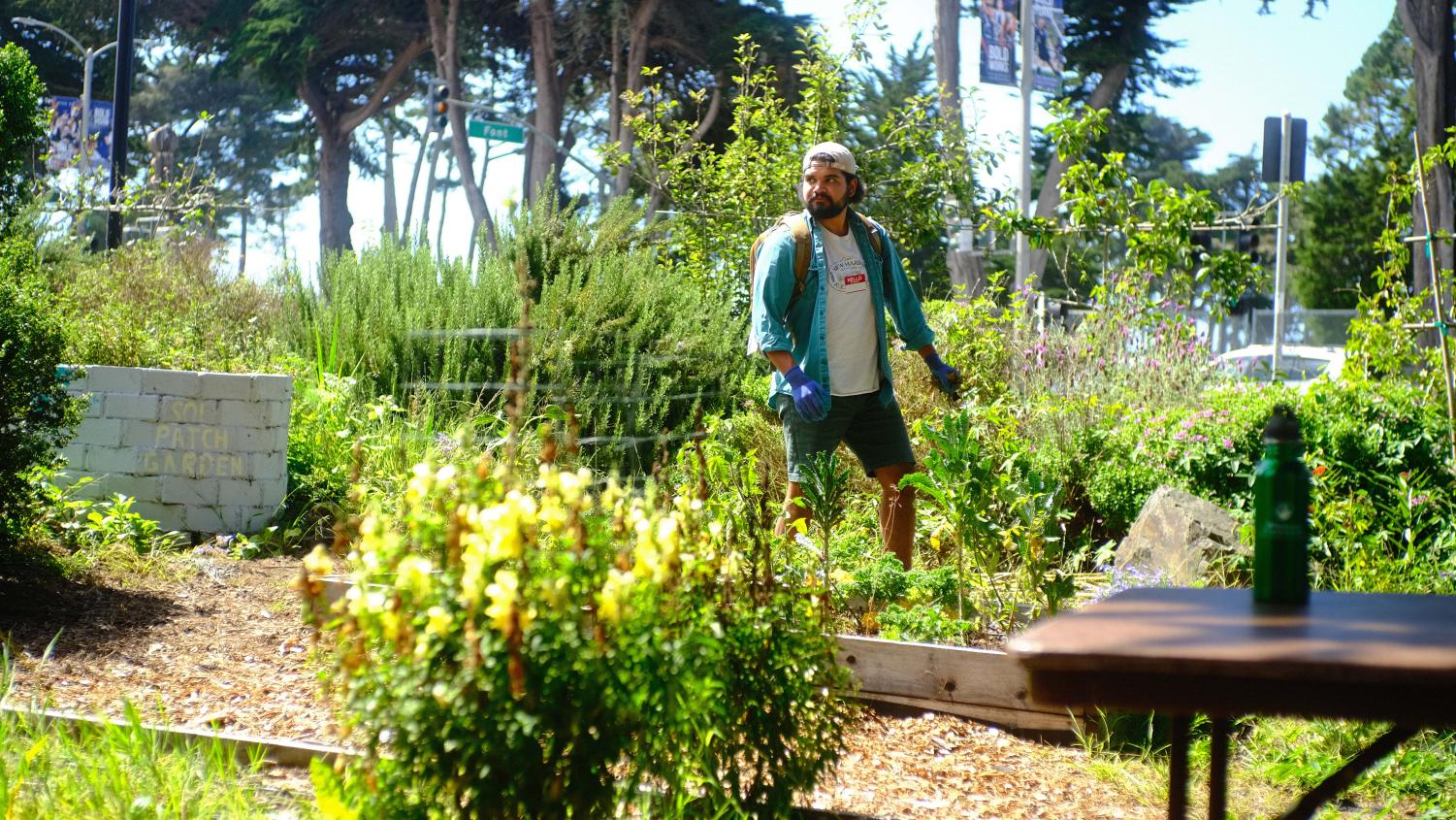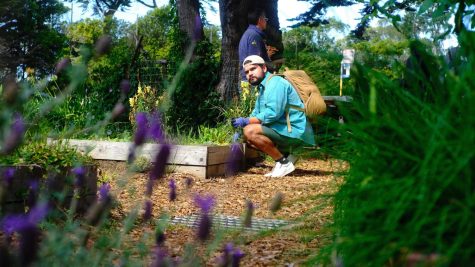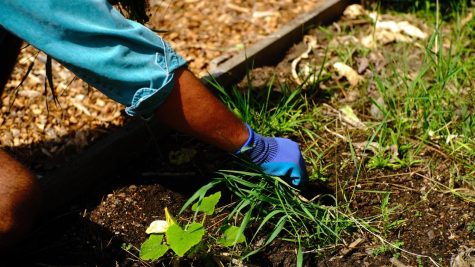



20 students attended the event to learn more about the Environmental Resource Center and the garden that can feed around 50 people.
Sep 20, 2022
Associated Students welcomed the campus community to SF State’s Sol Patch Garden to explore its homegrown produce and learn more about the Environmental Resource Center on Monday.
The Sol Patch Garden was created in 2007 by the Environmentally Concerned Organization of Students in collaboration with University Grounds Facilities.
Today the garden is a space for SF State students to exercise their interests in gardening and is located at the corner of 802 Font Blvd. behind Mary Park Hall.
As of 2018, ERC adopted the Sol Patch Garden and has expanded to provide gardening workshops, volunteer opportunities and fresh produce for the AS Gator Groceries.
Sustainable Initiatives Coordinator Nichole Dodson hosted the Sol Patch Garden open house.

Dodson believes sustainability is important on campus because it is knowledge that students and the SF State community can learn now and share in the future.
“Sustainability isn’t just [knowing] how to sort through the bins, it’s also that environmental justice aspect to how we can create a world that is sustained for people and planet and environment,” Dodson said.
The campus garden is a form of sustainability that uses natural resources that help restore the land.
During the open house, Sol Patch Garden intern Luis Reyes worked in the garden and explained the different vegetables, herbs, fruits and plants growing in the seven garden beds.
“It’s harvesting all the food we grow and making sure it goes back to the students,” Reyes said. “There’s some char right here, behind me is some kale, on the other side there is strawberry and raspberries and we’re working on green onions there.”
Reyes believes the Sol Patch Garden can feed about 50 people.
“It’s a first little step in helping people be sustainable, especially like I said the food that we grow here is going back to the students so it’s a little example of sustainability,” said Reyes.
Environmental Studies major Ann Yamashita attended the open house and was excited to meet like-minded people who are interested in sustainability. She was able to harvest green onions and kale with the help of Reyes.
At the open house, Gator Outdoor Adventures also shared information about how students can be involved in more outdoor activities.
Gator Outdoor Adventures is a program provided by SF State’s Campus Recreation Department that encourages students to participate in outdoor experiences and appreciate nature.
GOA Student Manager Kyle O’Rourke guides students through hiking, camping, backpacking, mountaineering and more.
“There’s this thing called ‘leave no trace,’ which is a guiding ideology on how to behave in the outdoors to minimize your impact on the environment while still being able to enjoy it,” O’Rourke said.

The “leave no trace” ideology is seen as an ethical code of conduct for the outdoors. It is a program that educates people on sustaining nature for future generations.
“Whether it is trash, or someone did a campfire where they aren’t supposed to and the ground is all black, or if there are people at the campgrounds and playing music loud at 11 p.m.,” O’Rourke said.
According to AS, the Sol Patch Garden offers its seven garden beds for adoption so SF State students can grow what they please. After a two-year closure due to the COVID-19 pandemic, ERC is glad to open the space up for students again.

